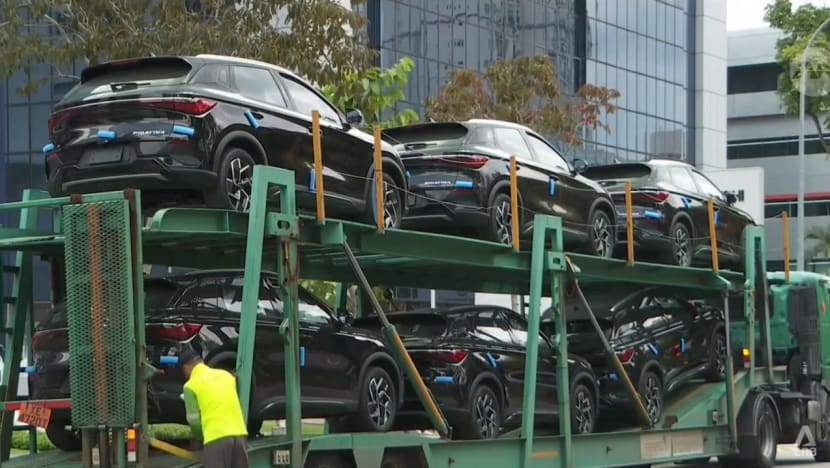Baltimore port closure has minimal impact on Singapore’s car industry
However, if other ports cannot cope with added capacity, this could spill over to disrupt the export of goods like petroleum to Asia, said one analyst.

There is no delay in the import of American cars or its parts to Singapore, automobile service providers said.

This audio is generated by an AI tool.
SINGAPORE: There is no delay in the import of American cars or its parts to Singapore, automobile service providers said.
This is even as the Port of Baltimore, the busiest US port for car shipments, remains closed following the collapse of the Francis Scott Key Bridge.
The Baltimore port handled at least 750,000 vehicles in 2023, according to data from the Maryland Port Administration.
Shipping companies will reroute their cargo to other nearby ports, but overall, the closure will have minimal impact on US imports to Singapore and its prices, market watchers said.
The Baltimore port is one of two ports on the Eastern Seaboard that is deep enough for very large container ships that carry goods like vehicles and farming and construction equipment, international growth practice partner at consulting firm PwC Singapore David Wijeratne told CNA.
However, based on automotive ownership in Singapore, and the proportion of vehicles arriving from the US as opposed to countries like Japan and China, “that's a percentage that can probably be managed, especially in the medium to longer term”, he said.
The real impact will be felt by consumers in the US expecting vehicles ordered from Europe, as those could be delayed by months, he added.
PREPARED FOR SHOCKS
Official dealers of US car brands here, such as Chevrolet, Ford and Jeep, said impact is likely to be minimal. Dealers of parallel imported cars were similarly unaffected as they mostly bring in cars from Japan and China, while continental makes usually come from Europe.
"While we don't expect any delays because we source orders or parts from Asian countries, European countries, or even locally, we will still keep an eye out to see if there are any unexpected impacts just to be on the safe side,” said head of marketing at Vin’s Automotive, Mr Aaron De Roza.
Some firms have been prepared for unexpected circumstances. For example, Revo Performance, a specialist workshop for Jeep cars, said it has been stocking up 20 per cent more spare parts and accessories since last year.
Mr Wijeratne said this shows that merchants have learnt lessons from recent global events that affected supply chains, such as the COVID-19 pandemic and the Red Sea ship attacks and are prepared for such disruptions.
“A number of companies have begun to deploy alternative plans with regards to their logistics in the first instance, so they're planning for this more than they did before. It's not to say that there isn't an impact. But I think it's becoming more manageable that many companies are preparing for that,” he said.
MONTHS FOR OTHER PORTS TO ADAPT
Analysts said it may take up to three months for other ports to adapt to the increased capacity. If they cannot cope, this could spill over to disrupt the export of goods like petroleum to Asia.
Baltimore was the top originating port for US thermal coal exports at 17.1 million metric ton in 2023, according to US Census Bureau data, with India a top destination.
“The impact is minimal, in terms of commodities coming out into Asia from the US. But if you talk about petroleum products, for example, there could be exports of petroleum products into the Asian region, and that would potentially have some disruptive effects,” said Associate Professor Goh Puay Guan from the National University of Singapore Business School.
"Every time there is a disruption in commodities, it means that somewhere else has to make up for that volume, somewhere else has to make up for that supply. So, even if it's not a direct impact from the US into Asia, it may create other disruptions for the other supply sources that have to ship to Asia, because they have to reroute or they have to get the sources from somewhere else,” he added.
Additional reporting by Richa Liz Mathew


















